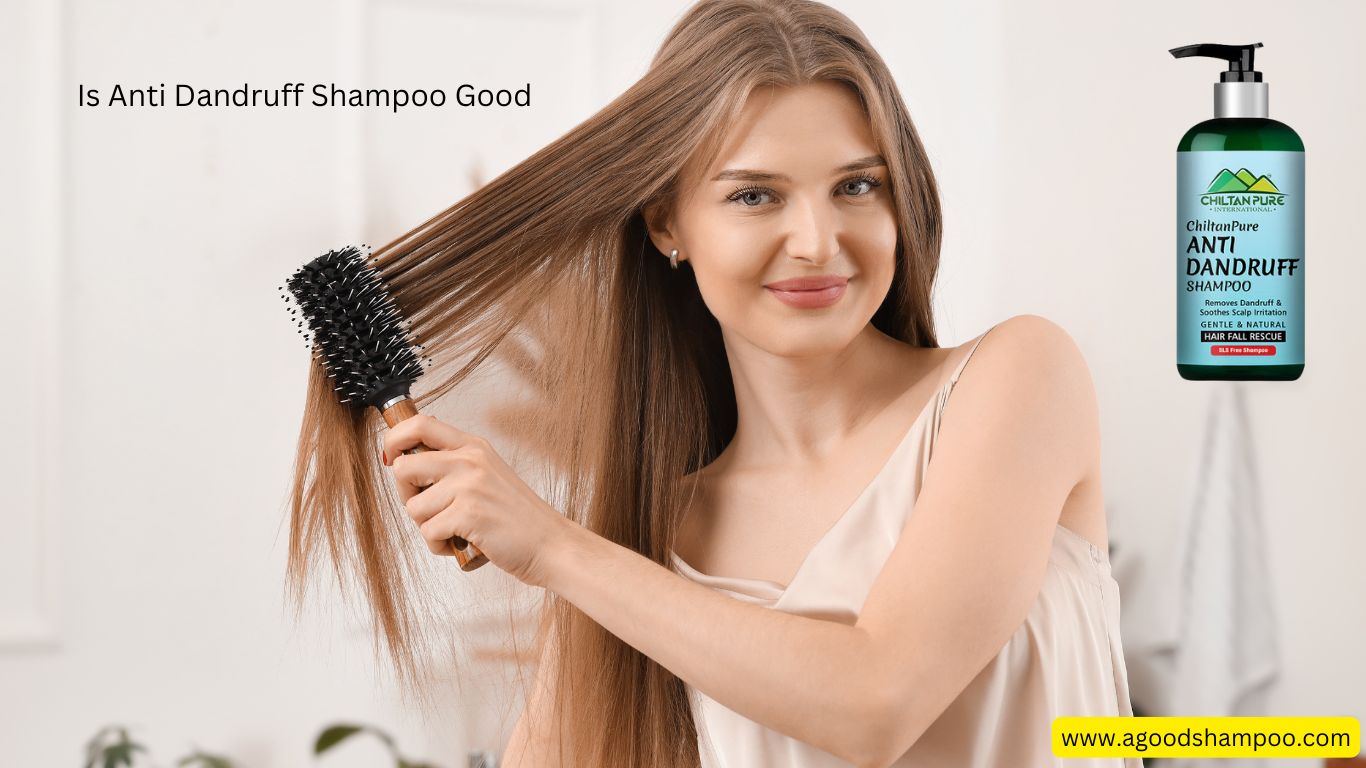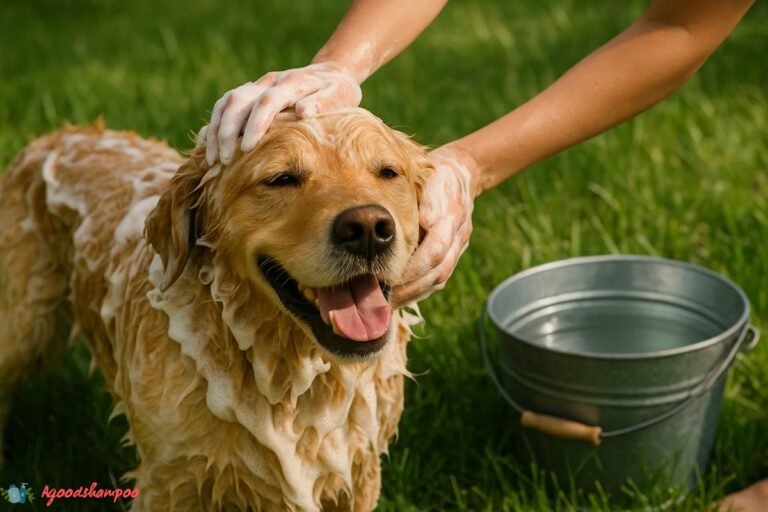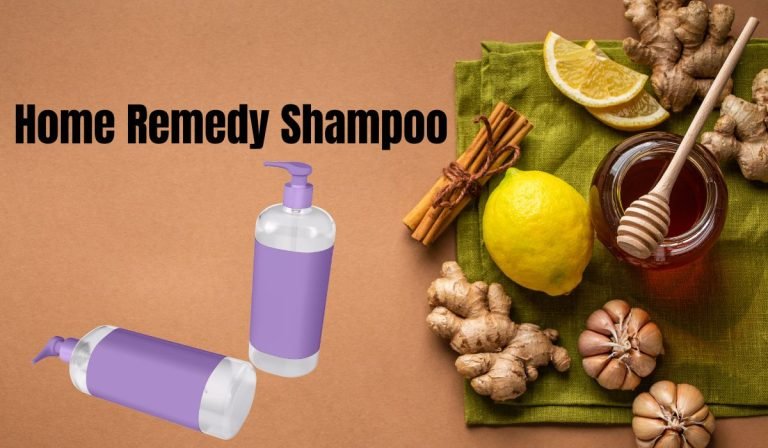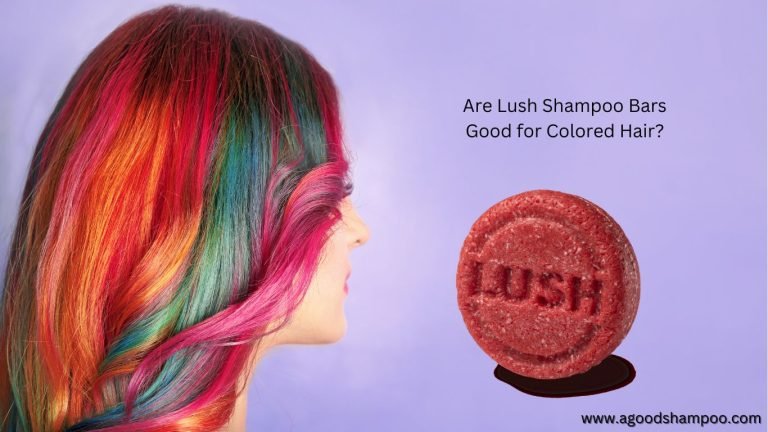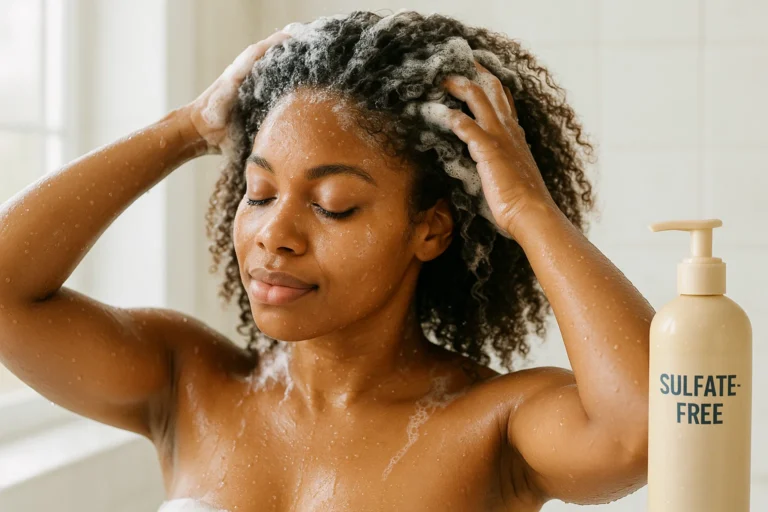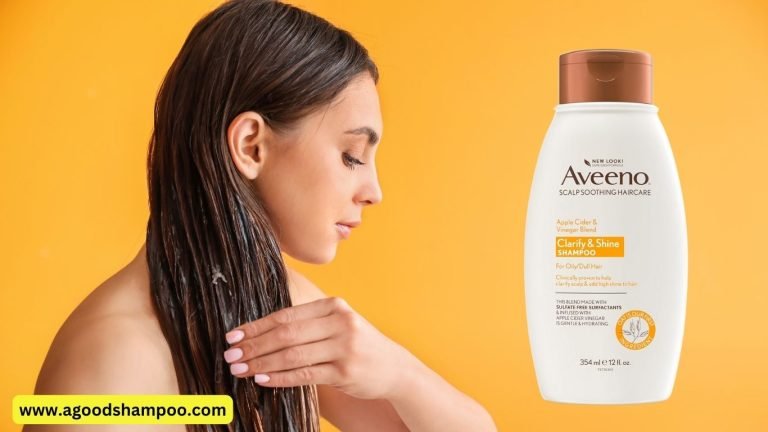Is Anti Dandruff Shampoo Good
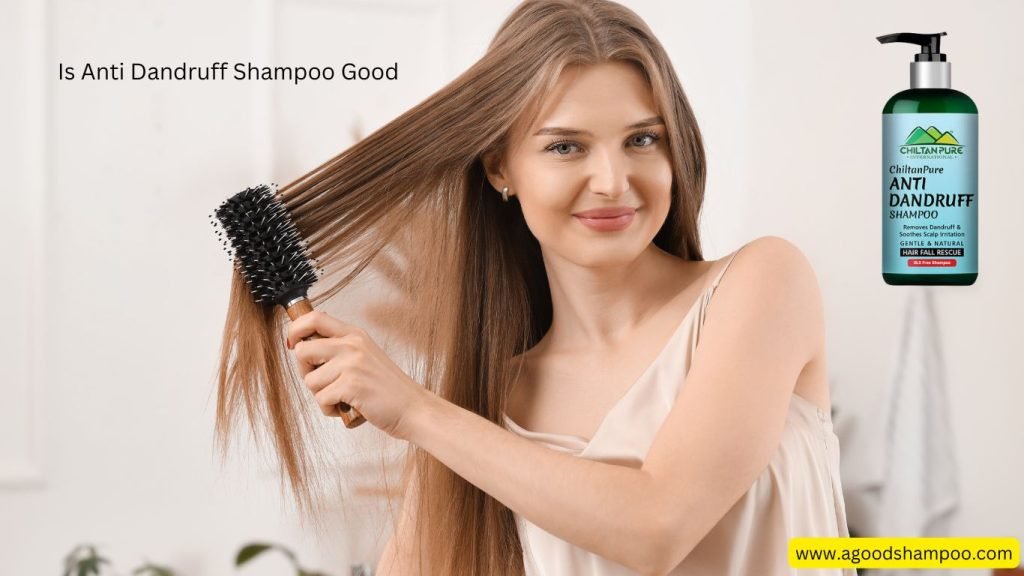 If you’ve ever battled dandruff, you know the persistent flakes and itchiness that can feel like a never-ending cycle. You’ve probably asked yourself, “Is anti-dandruff shampoo good?” The truth is, when used correctly, anti-dandruff shampoos can be a game-changer in your hair care routine. But there are a few things to consider, like the best anti-dandruff shampoo, the advantages, disadvantages, and even potential effects on hair loss. Let’s dive deep into these questions and provide the answers you’re seeking.
If you’ve ever battled dandruff, you know the persistent flakes and itchiness that can feel like a never-ending cycle. You’ve probably asked yourself, “Is anti-dandruff shampoo good?” The truth is, when used correctly, anti-dandruff shampoos can be a game-changer in your hair care routine. But there are a few things to consider, like the best anti-dandruff shampoo, the advantages, disadvantages, and even potential effects on hair loss. Let’s dive deep into these questions and provide the answers you’re seeking.
What Makes Anti-Dandruff Shampoo Effective?
Anti-dandruff shampoos are formulated to combat Malassezia, a yeast-like fungus that causes dandruff by overgrowing on the scalp. The primary ingredients found in these shampoos are often zinc pyrithione, ketoconazole, or selenium sulfide, all of which work by reducing the fungus and flakiness.
The question of whether anti-dandruff shampoo is good doesn’t have a one-size-fits-all answer, though. If you have dandruff due to a scalp imbalance caused by yeast or fungi, an anti-dandruff shampoo can be highly beneficial. But if your dandruff is due to dry scalp or other conditions, some formulations could potentially worsen the problem. It’s essential to choose the right one for your specific condition.
Best Anti-Dandruff Shampoo: How to Choose?
When searching for the best anti-dandruff shampoo, it’s easy to get overwhelmed by the myriad of choices available on the market. One of the standout names is Saeed Ghani Anti-Dandruff Shampoo. This brand leverages natural ingredients and a traditional approach to scalp care, using botanicals that are both soothing and effective for many users. Saeed Ghani’s shampoo tends to be gentler on the scalp, making it a great option if you prefer something more natural.
On the other hand, Nizoral Anti-Dandruff Shampoo is another top contender. Nizoral contains ketoconazole, a potent antifungal agent that not only fights dandruff but also helps prevent it from returning. It’s particularly effective for those who suffer from persistent, severe dandruff and scalp issues.
Is Anti-Dandruff Shampoo Good for Hair Loss?
One of the frequently asked questions is, “Is anti-dandruff shampoo good for hair loss?” The relationship between dandruff and hair loss is often misunderstood. Dandruff itself doesn’t cause hair loss, but the itching and irritation that come with it can lead to scratching, which damages the hair follicles and can result in temporary hair shedding.
Shampoos like Nizoral can help in this area. Studies have shown that ketoconazole in Nizoral can improve hair density and reduce hair loss in some cases. While anti-dandruff shampoos are not a cure for hair loss, they can help manage conditions that contribute to hair thinning, particularly if the cause is scalp irritation.
Is It Okay to Use Anti-Dandruff Shampoo Every Day?
Another crucial consideration is frequency. “Is it okay to use anti-dandruff shampoo every day?” The answer depends on the formulation and your scalp’s needs. Some milder anti-dandruff shampoos, like those containing zinc pyrithione or natural ingredients, are safe for daily use. These help control dandruff without stripping your scalp of essential oils.
However, stronger formulas, especially those with ketoconazole or coal tar, should not be used every day as they can lead to dryness or irritation. It’s often best to start by using the shampoo 2-3 times a week and adjusting based on how your scalp responds.
What Are the Disadvantages of Anti-Dandruff Shampoo?
While anti-dandruff shampoos are a lifesaver for many, they’re not without their downsides. “What are the disadvantages of anti-dandruff shampoo?” is a question worth exploring.
- Dryness: Some anti-dandruff shampoos, especially those with strong active ingredients, can dry out both the scalp and hair. This can lead to brittle hair and exacerbate issues like split ends.
- Fading Hair Color: If you color your hair, be cautious, as some anti-dandruff shampoos can strip hair color faster than regular shampoos.
- Overuse: Prolonged use of certain ingredients can cause resistance. For instance, the yeast on your scalp may become less responsive to zinc pyrithione or ketoconazole over time, making the shampoo less effective.
It’s always a good idea to consult with a dermatologist if you experience persistent dandruff. They can help you choose a shampoo that’s both effective and suited to your scalp type.
Should I Stop Using Dandruff Shampoo?
A common question we encounter is “Should I stop using dandruff shampoo?” If your dandruff is under control, you might feel tempted to stop. However, if you’re prone to dandruff, discontinuing the use of your anti-dandruff shampoo can lead to a recurrence of symptoms.
A good approach is to gradually reduce the frequency of use once your scalp condition improves, rather than stopping cold turkey. You can alternate between your anti-dandruff shampoo and a regular gentle shampoo to maintain scalp health without overwhelming your hair with active ingredients.
How to Maximize the Benefits of Anti-Dandruff Shampoo
To get the most out of your anti-dandruff shampoo, it’s essential to use it correctly. Follow these simple tips:
- Apply Thoroughly: Focus on applying the shampoo directly to the scalp rather than the hair shaft. This ensures the active ingredients target the source of dandruff.
- Massage Gently: Take a minute or two to massage the shampoo into your scalp gently. This increases blood flow to the scalp and helps the ingredients penetrate more effectively.
- Leave It In: For best results, leave the shampoo on your scalp for at least 3-5 minutes before rinsing it off. This gives the ingredients time to work their magic.
By using anti-dandruff shampoo correctly, you’ll notice improved scalp health, less flaking, and even a reduction in itchiness over time.
Table of Product Specs:
| Product | Main Ingredient | Best For | Frequency of Use | Pros | Cons |
|---|---|---|---|---|---|
| Saeed Ghani Anti-Dandruff Shampoo | Herbal/Botanicals | Mild dandruff, Natural care | Daily or as needed | Gentle, natural ingredients, soothing | Might not be strong enough for severe dandruff |
| Nizoral Anti-Dandruff Shampoo | Ketoconazole | Persistent, severe dandruff | 2-3 times a week | Potent antifungal, fights recurring dandruff | Can dry scalp and hair, fades colored hair |
| Head & Shoulders Anti-Dandruff | Zinc Pyrithione | Regular dandruff control | Daily | Easily accessible, scalp relief | May lose effectiveness with long-term use |
| Neutrogena T/Gel Therapeutic | Coal Tar | Psoriasis, severe scalp issues | 2-3 times a week | Reduces severe flaking, long-lasting relief | Strong smell, may dry hair |
| Selsun Blue Medicated | Selenium Sulfide | Scalp fungus, oily dandruff | 2-3 times a week | Helps with oily dandruff, cooling sensation | May cause hair to become dry or brittle |
So, is anti-dandruff shampoo good? The answer is yes, but with a few caveats. When used properly and chosen based on your specific scalp needs, anti-dandruff shampoo can be an effective solution for those struggling with dandruff. The best anti-dandruff shampoos on the market, such as Saeed Ghani Anti-Dandruff Shampoo and Nizoral Anti-Dandruff Shampoo, are excellent options for keeping flakes at bay while promoting a healthy scalp environment.

Marlena Stell is a beauty expert and educator passionate about empowering individuals through personalized hair care and wellness advice.

